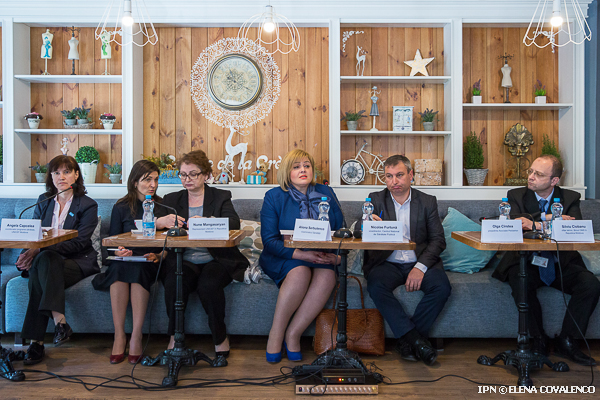The immunization rate in Moldova has decreased during the past year owing to the inadequate communication between doctors and patients and to the collection of information about vaccination and side effects from unverified online sources, vice director of the National Public Health Center Nicolae Furtuna said in a press club meeting staged by the Ministry of Health on the occasion of the European Immunization Week in Moldova that is held during April 24 – 30.
According to Nicolae Furtuna, the eastern districts and the municipalities of Chisinau and Balti are the regions where the immunization rate decreased the most. The persons often refuse to be vaccinated because they believe the diseases against which the shot is administered no longer pose a threat, but this is not so.
Deputy Minister of Health Aliona Serbulenko said that owing to vaccination, Moldova does not witness such diseases as diphtheria, measles and rubella. The people refuse vaccination because they do not realize the danger posed by diseases that can be prevented by immunization. Some refuse to be vaccinated for religious reasons. “The decline in the number of persons who are annually immunized in Moldova is a reason for concern. The medical workers, especially those who are in direct contact with patients, need to be instructed,” stated the deputy minister.
Owing to the new vaccines, the teens and adults can be protected from diseases that pose threats to life, such as flu, meningitis and cervical or liver cancer.
UNICEF Representative in Moldova Nune Mangasaryan said immunization turned out to be one of the most successful interventions in public health in the world. Vaccination is one of the most efficient methods of reducing the number of deaths among children from causes that can be prevented. “The parents do not realize the negative effects of the refusal to be immunized. They often regret that their children were vaccinated only after these caught the disease,” stated Nune Mangasaryan.
In 2016, the Ministry of Health approved the fifth national immunization program for 2016-2020. The document envisions the free vaccination of the population against 12 infectious diseases, development of the state public health surveillance service and increase in immunization coverage to 95%. Moldova purchases only registered vaccines from producers that are supervised by the World Health Organization. The shots are administered only in vaccination offices. Before vaccination, the persons are examined by doctors and are monitored after they are immunized.

